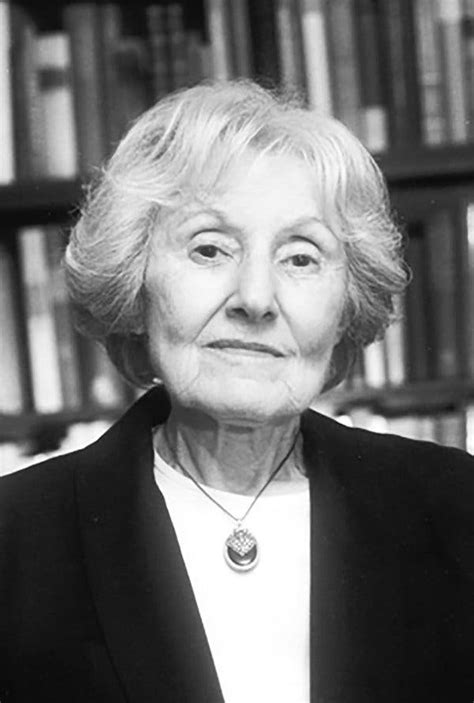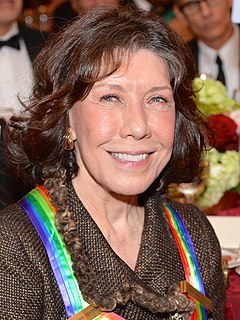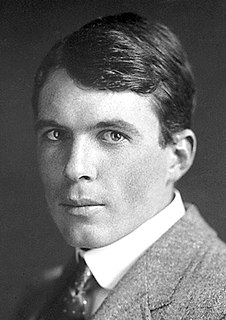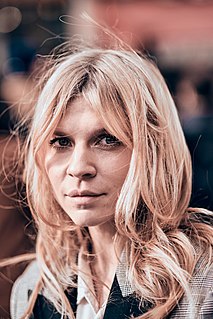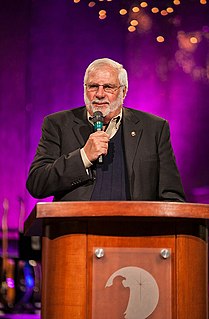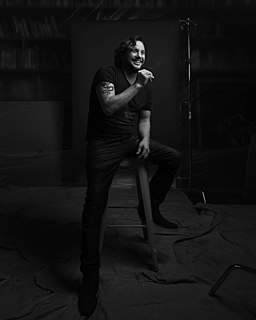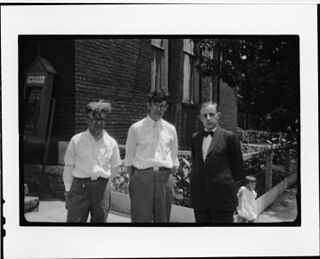Top 98 Humanistic Quotes & Sayings - Page 2
Explore popular Humanistic quotes.
Last updated on December 11, 2024.
It's Steven's [Sebring] view of what he saw in traveling and working with me. But on another scale, I think the film [Dream of Life] is very humanistic: It touches on motherhood, death, birth, art, laundry, anger against the Bush administration... While I don't think it's the kind of film where one goes to find some of the darker, edgier aspects of life, the film was born of grief.
The Marxist combination of materialism and determinism is fatally anti-humanistic. It denies a consciousness, a mind, that is independent of material conditions and class relations. It denies a will and volition that are capable of shaping the course of history. It denies an individuality that is not reducible to class. It denies both the idea and the reality of freedom, a freedom that is something more than the "bourgeois" freedom to buy and sell. It denies a morality that transcends class interests. And it denies the spirituality of man.
I've known gay people - men and women - since I was a young person. To me it's just naturalistic and realistic to portray gay characters in a humanistic light. As a young man, I knew enough gay people as people not to fear them. On the other side of the coin, I like to irritate conservatives and homophobes.
Every child needs to become literate in one or more languages, and every child should become comfortable in the major scholarly disciplines - historical, scientific, mathematical, and artistic-humanistic thinking. Beyond that, I am not in favour of a uniform system. I think there should be some choices.
Even if man's hunger and thirst and his sexual strivings are completely satisfied, 'he' is not satisfied. In contrast to the animal his most compelling problems are not solved then, they only begin. He strives for power or for love, or for destruction, he risks his life for religious, for political, for humanistic ideals, and these strivings are what constitutes and characterizes the peculiarity of human life.
If I had a worldview, and I don't know if I do, but if I did, it's one that's intensely humanistic. [That worldview] is that the only thing that matters is family and personal connection, and that's the only thing that gives life meaning. Religion and gods and beliefs - for me, it all comes down to your brother. And your brother might be the brother in your family, or it might be the guy next to you in the foxhole, it's about human connections.
Knowledge is humanistic in quality not because it is about human products in the past, but because of what it does in liberating human intelligence and human sympathy. Any subject matter which accomplishes this result is humane, and any subject matter which does not accomplish it is not even educational.
You can refer to god and you are really just talking about nature. If you are going to say the universe is god, then everything is god, everything is religion. But when we explore traditional religion we are talking about humanistic gods people pray to, that they think can intervene in our lives, who run sort of a heaven-and-hell operation for the afterworld.
I have great hope and faith, but it's a humanistic faith based in facts; you have to believe that facts exist. We can all arrive at the same facts if we engage in the process of experimentation, observation, and verification, which can solve more of the world's major problems than a debate over whether God does or doesn't exist.
What we require is not a formal return to tradition and religion, but a rereading, a reinterpretation, of our history that can illuminate the present and pave the way to a better future. For example, if we delve more deeply into ancient Egyptian and African civilisations we will discover the humanistic elements that were prevalent in many areas of life. Women enjoyed a high status and rights, which they later lost when class patriarchal society became the prevalent social system.
I think that the scienti?c way of looking at the world, and the humanistic way of looking at the world are complementary. There are important differences which should be preserved, and in trying to do away with those differences we would lose something the same way as if we tried to make all religions one religion or all races one race. There is a cultural diversity that's very valuable, and it's valuable to have different ways of looking at the world.
I feel very strongly indeed that a Cambridge education for our scientists should include some contact with the humanistic side. The gift of expression is important to them as scientists; the best research is wasted when it is extremely difficult to discover what it is all about ... It is even more important when scientists are called upon to play their part in the world of affairs, as is happening to an increasing extent.
Anything, even the conceptually most complex material, can be written for general audiences without any dumbing down. Of course you have to explain things carefully. This goes back to Galileo, who wrote his great books as dialogues in Italian, not as treatises in Latin. And to Darwin, who wrote The Origin of Species for general readers. I think a lot of people pick up Darwin's book and assume it must be a popular version of some technical monograph, but there is no technical monograph. That's what he wrote. So what I'm doing is part of a great humanistic tradition.
I was on a panel with light skinned Blacks and a famous gay science fiction writer, who were complaining about how Blacks are against gays and light skinned Blacks and how intolerant Blacks are of different groups. My position was that Blacks were among the most humanistic, tolerant groups in the country and that across the street from my house in Oakland was one inhabited by White gays.
In my normal way of doing things, there's a little bit of 'going native' that takes place, where you're in a world long enough, you can't really help but start to see things in a nuanced, more humanistic way. Just because you're with people and you start to, in general, slightly like the people you're with.
Alliances are crucial to success in the political sphere. However, if we are to approach other organizations to propose alliances for the public good, we must be prepared to assert a far more important role for the library. We must clearly define what we do and establish and assert the relationship of libraries to basic democratic freedoms, to the fundamental humanistic principles that are central to our very way of life. . . .
Paris, hours in the café, a certain spirit of rebellion, one side a bit too stubborn, the sea, the true, in Bretagne, the walking in Provence, the taste, the passion for literature, the libraries, the beautiful editions, remaking the world in a set of hours around a table and a bottle of wine. Talking without really saying nothing, just for the pleasure of talking. The museums, the theatres, the elegance, the delicacy, the heritage of the Illustration, a humanistic philosophy. The balance we got between a nordic rigor and a latin savoir-vivre, the insolence and the freedom.
It is so hard for an evolutionary biologist to write about extinction caused by human stupidity. Let me then float an unconventional plea, the inverse of the usual argument. The extinction of Partula is unfair to Partula. That is the conventional argument, and I do not challenge its primacy. But we need a humanistic ecology as well, both for the practical reason that people will always touch people more than snails do or can, and for the moral reason that humans are legitimately the measure of all ethical questions for these are our issues, not nature's.
No waving of enchanted wands but heightened perception. No magic objects, but a transformed and enhanced reality. No spells or chants, but the raw power of the human will to enact supernatural change upon the universal fabric. This is the kind of "magic" that fills Lords of Rainbow - elemental, organic, humanistic - an extension of reality.
Absolute Evil is not the kingdom of hell. The inhabitants of hell are ourselves, i.e., those who pay our painful, embarrassing, humanistic duties to society and who are compromised by our intellectually dubious commitment to virtue, which can be defined by the perpetual smear-word of French polemic: the bourgeois. (Bourgeois equals humanist.) This word has long been anathema in France where categories are part of the ruling notion of logique. The word cannot be readily matched in England or America.
James Baldwin is one of the greatest, North American writers of the second half of the Twentieth Century. A prolific writer and a brilliant social critic, he foreshadowed the destructive trends happening now in the whole Western world and beyond, while always maintaining a sense of humanistic hope and dignity. He explored palpable, yet unspoken, intricacies of racial, sexual, and class distinctions in Western societies and the inevitable, if unnameable, tensions with personal identity, assumptions, uncertainties, yearning, and questing.
I always get into arguments with people who want to retain the old values in painting - the humanistic values that they always find on the canvas. If you pin them down, they always end up asserting that there is something there besides the paint on the canvas. My painting is based on the fact that only what can be seen there is there... What you see is what you see.
I think that's true of all cinema, that's why cinema is the great humanistic art form. Whatever the film is, it doesn't matter what the film is about, or even whether it's a narrative or figurative film at all, it's an invitation to step into somebody else's shoes. Even if it's the filmmaker's shoes filming a landscape, you go into somebody else's shoes and you look out of their lens, you look out of their eyes and their imagination. That's what going to the pictures is all about.
I love and collect contemporary art and go to all the art fairs. I love Damien Hirst and Matthew Barney. I grew up in Italy and had a humanistic education in philosophy and literature - things I love and appreciate. People are richer and more complex than just their day-to-day professional pursuits might suggest.
We are coming to the times when passive Christianity and passive Christians will cease to exist. There is a maturity, a discipline and a divine militancy coming upon the people of God. Those who have succumbed to humanistic and idealistic theologies may have a hard time with this, but we must understand that God is a military God. The title that he uses ten times more than any other is "the Lord of Hosts", or "Lord of armies". There is a martial aspect to his character that we must understand and embrace for the times and the job to which we are now coming.
In my normal way of doing things, there's a little bit of 'going native' that takes place, where you're in a world long enough, you can't really help but start to see things in a nuanced, more humanistic way. Just because you're with people and you start to in general slightly like the people you're with.
The study of letters is the study of the operation of human force, of human freedom and activity; the study of nature is the study of the operation of non-human forces, of human limitation and passivity. The contemplation of human force and activity tends naturally to heighten our own force and activity; the contemplation of human limits and passivity tends rather to check it. Therefore the men who have had the humanistic training have played, and yet play, so prominent a part in human affairs, in spite of their prodigious ignorance of the universe.
He [Mark Webb] is very savvy, technically, he's shot so many videos, he knows how to get what he wants. The surprise, of course, is that he's also an extremely humanistic story-teller. He's obsessed with story and character, and not just making it look right, which is a double-thred that's rare in directors.
I'm trying to make a primitive painting. I'm trying to summon the archaic. I want to enter into a primitive situation. This is my protest against the sensory deprivation that we experience, which is due to this tendency towards globalization, towards homogenization, towards the generic - a technological standard rather than an aesthetic standard. I'm mining history, trying to regenerate a pictorial situation that is more humanistic. It's not about commodification, it's not about fitting into some sort of corporate structure. It's opposed to that direction.

